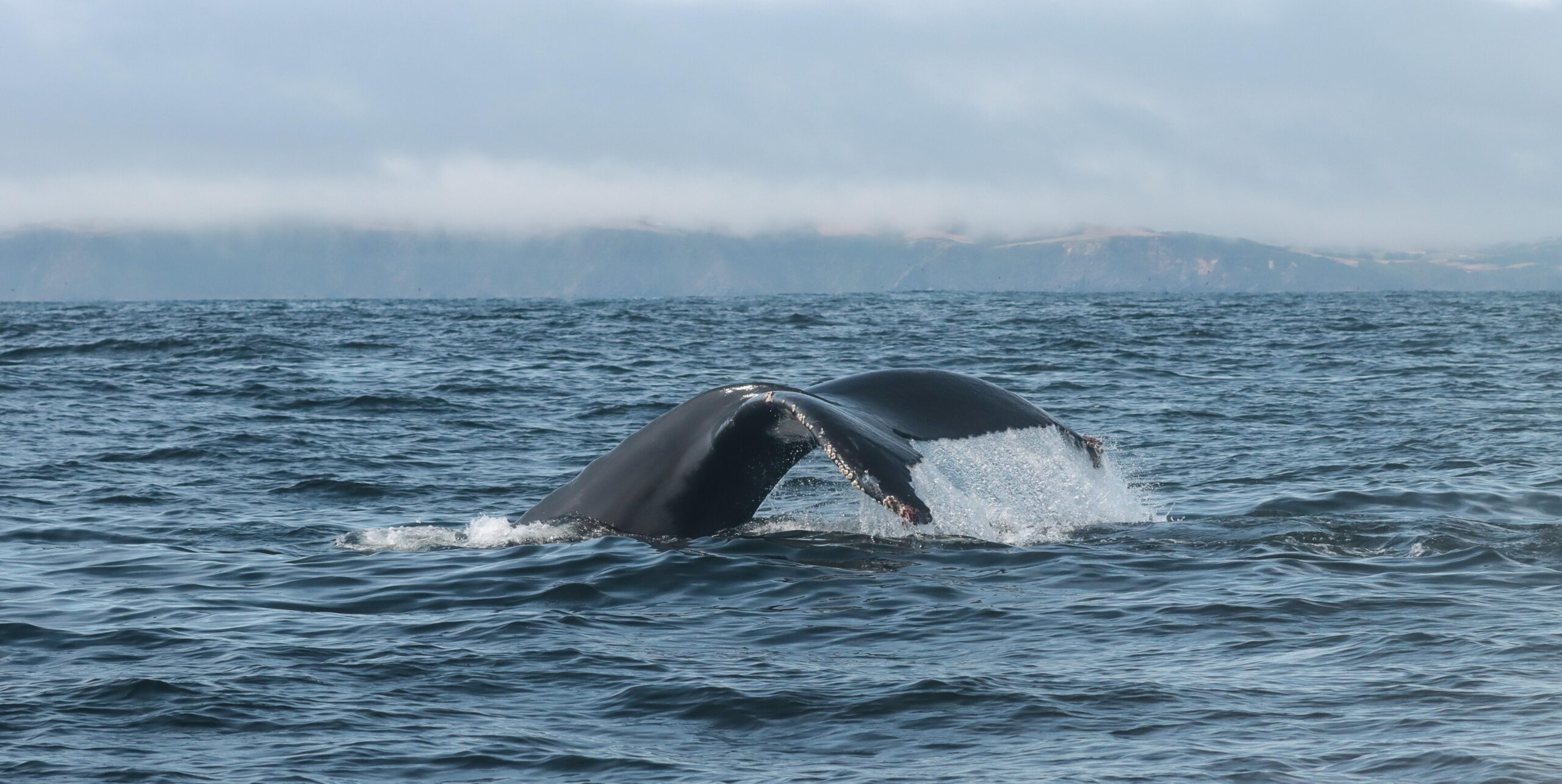Juan Carlos Cárdenas (Ecoceanos) and Elsa Cabrera (Cetacea Conservation Center)
This past World Whale Day, people celebrated an initiative that began in Hawaii in 1980, launched to highlight the pressing need for the preservation of humpback whales that visit its shores each year. In the stark context of that era, global whale populations were in freefall, teetering on the brink of extinction as a direct consequence of rampant commercial whaling—an archaic and unsustainable practice that humanity could no longer justify.
The International Whaling Commission (IWC), tasked with the stewardship of these majestic marine mammals, had failed to uphold its foundational mission—to conserve whale populations for the generations to come. Remarkably, it was a decade before this pivotal moment in 1980 that public sentiment began to shift; on April 22, 1970, over 20 million individuals in the United States united in protest against environmental degradation, igniting a transformative cultural and social movement with profound global implications.
In response to the mounting international outcry, Sweden organized the inaugural United Nations Conference on the Environment, widely recognized as the Earth Summit, in 1972. This landmark assembly convened representatives from 113 nations, culminating in the adoption of the Stockholm Declaration, which advocated for a global moratorium on commercial whaling among other critical environmental protections. Yet, it took an agonizing decade for the IWC to ratify this proposal, which only came into effect in 1986.
This protracted timeline underscored the complexities involved in enacting environmental policies designed to safeguard marine biodiversity—a crucial pillar of human wellness—especially in the face of entrenched geopolitical, nationalistic, and economic interests. In this case, the powerful fishing industry of Japan actively impeded progress while whale populations continued their downward spiral. Nevertheless, it became resoundingly clear that the heartfelt appeals of global citizens to end senseless killings and avert the extinction of large cetacean species were political and morally stronger.
Now, forty-five years later, the positive impact of the moratorium on commercial whaling is unmistakable. None of the whale species decimated by industrial whaling have vanished entirely, althought some continue to de endangered, including the majestic blue whales (Balaenoptera musculus), fin whales (Balaenoptera physalus), and Chile-Peru’s southern right whale (Eubalaena australis). Thus, the IWC reaffirmed its commitment to its primary mandate of conserving these species, promoting non-lethal alternatives that have fostered the growth of whale-watching tourism as an economically viable pursuit.
Recent advancements in scientific research—using non-lethal methodologies—have shown that whales’ play key roles in ocean productivity and climate change mitigation. These extraordinary creatures essentially act as gardeners and fertilizers of the ocean, providing essential nutrients that uphold the health and stability of marine ecosystems, thereby playing a critical role in planetary health. Therefore, the ongoing whaling practices perpetrated by Japan’s fishing industry represent not only a violation of legal statutes but also an environmental crime.
Environmental Activists Strategic Victories Against Attempts to Criminalize Whale Protection
We find ourselves at a pivotal crossroads for the planet—including its oceans and the great whales that inhabit them. Significant geopolitical shifts are underway, some manifesting subtly while others emerge in stark and often violent ways.
Social movements advocating for environmental rights, alongside indigenous communities, have been instrumental in democratizing societies while simultaneously fostering the protection of ecosystems and biodiversity. Today, environmentalists face intimidation, criminalization, and even contempt, often branded by states and corporations as “eco-terrorists.”
A recent international campaign that mobilized millions of people culminated in a decisive victory with the release of Paul Watson (73), a historic anti-whaling figure. His unjust imprisonment in Greenland, at Japan’s insistence and under spurious charges stemming from his dedicated efforts to fight illegal whaling in Antarctic waters, highlighted the lengths to which some governments will go to suppress dissenting voices.
The Danish courts’ rejection of Japan’s extradition request last December marked a significant setback for Japanese diplomacy, which seeks to criminalize environmental defenders opposed to proposals otiented to lift global moratorium on whaling, to resume commercial whaling in the biodiverse waters of the Pacific and Antarctic regions.
Watson’s release not only symbolizes the power of collective civic pressure but also reinforces the need for ongoing collaboration between advocates, scientists, local communities, and artists in their valiant struggle against biodiversity loss in our oceans.
Protecting whales transcends the realm of environmentalism; it stands as a pressing necessity for preserving the delicate balance of our oceans and the biodiversity they harbor. It is imperative that we rally citizen organizations to remain vigilant against Japan’s geopolitical expansionism and its outdated and environmentally destructive whaling practices masquerading under the guise of the “harpoon diplomacy.” Such influence seeks to sway regional officials to extend operations into the southeastern Pacific and Antarctic territories in the coming years.
Addressing the Crisis of Industrial Salmon Farming and Its Impact on Whales: A Civic Responsibility
At the recent 55th session of the Human Rights Council in Geneva, UN Special Rapporteur David Boyd emphatically stated that salmon farming constitutes a substantial threat to the ecological integrity of Patagonia, particularly within the Kawésqar National Park (Chilean Patagonia), which supports a vibrant array of ecosystems, including thirty-two cetacean species. He recommended that Chile should implement a moratorium on the expansion of this industry pending an independent scientific evaluation of its impacts.
As citizens, especially those in the U.S.— the primary market for Chilean farmed salmon — we must collectively advocate for the protection of southern seas. We implore consumers to boicot chemically laden industrial salmon produced in Patagonia, which has resulted in high mortality rates among critically endangered whales due to collisions. Nearly a thousand salmon cargo vessels navigate their migratory feeding and breeding routes.
Moreover, concerns mount regarding the environmental pollution generated by aquaculture centers. Large cetaceans face fatal risks from nets deployed as part of anti-seal strategies at facilities situated in national parks and protected areas throughout Patagonia, further imperiling vulnerable wildlife populations reliant on healthy habitats.
World Whale Day serves as a vital reminder that while the moratorium on commercial whaling remains in place, significant threats continue to confront the dwindling whale populations. We must galvanize our efforts to apply pressure on the current Chilean government to implement robust protective measures, including those recommended by the UN Special Rapporteur on Environmental Human Rights, which encompass a comprehensi



